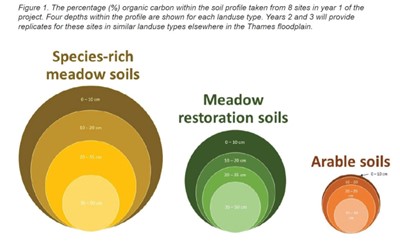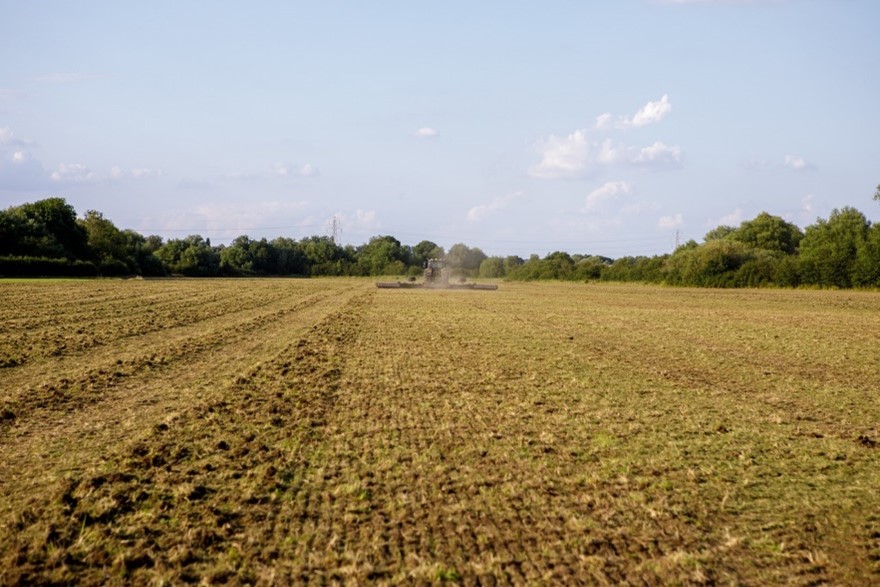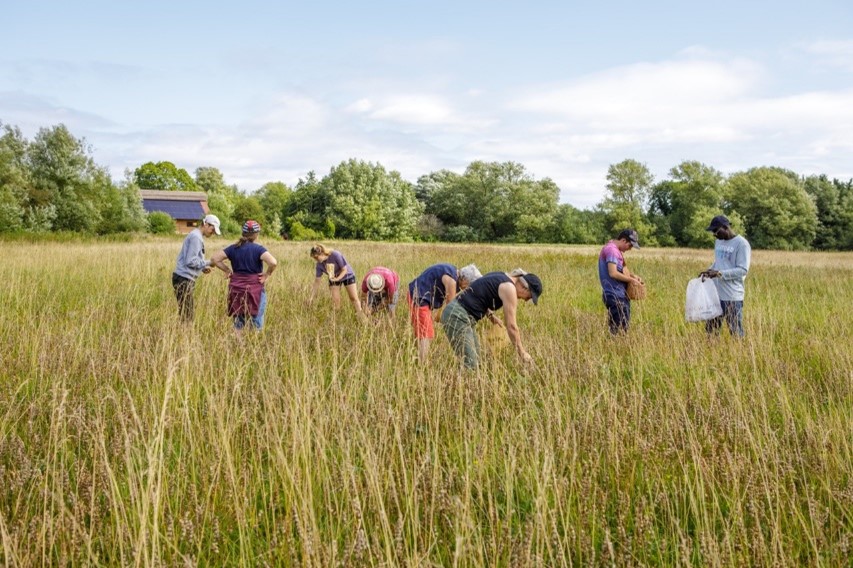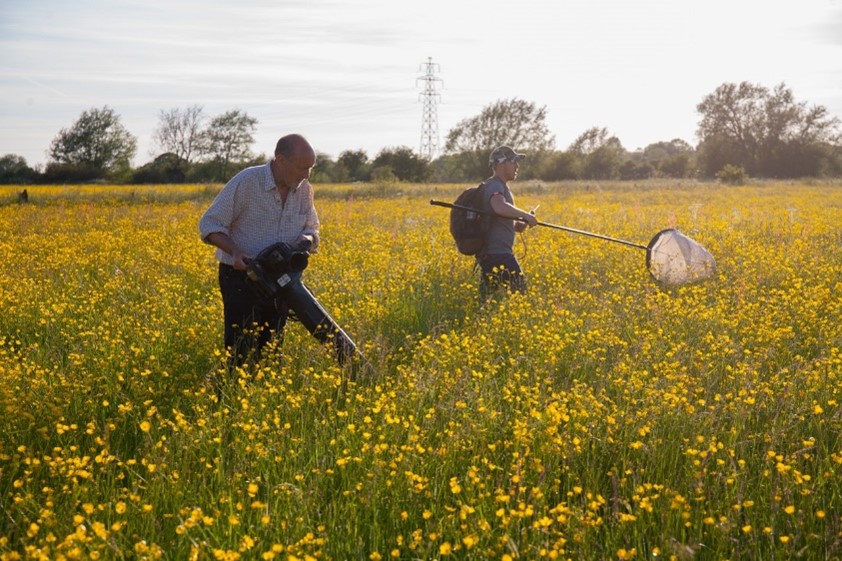We are now just into Year 2 of our Ecover Fertilise the Future Project a partnership between the FMP, Long Mead’s Thames Valley Wildflower Meadow Restoration Project, and the Berks, Bucks and Oxon Wildlife Trust (BBOWT), funded and supported by Ecover. In our first year we managed to achieve our objectives.
We started the process of evidencing the extent of carbon stored in floodplain meadow soils compared to floodplain habitats with other uses by collecting soils with the Berkshire, Buckinghamshire and Oxfordshire Wildlife Trust (BBOWT).
 Collecting soil samples - © BBOWT
Collecting soil samples - © BBOWT
Our first year results are shown below (and are therefore not replicated yet as that will happen in years 2 and 3). The year 1 data suggest that our hypothesis is correct: arable floodplain soils down to 50 cm store less soil carbon than ancient species rich meadow floodplain soils.
 **ALT TEXT REQUIRED
**ALT TEXT REQUIRED
We started restoration on 12 ha of species-poor or ex-arable fields using green hay taken from Long Mead, Oxfordshire.
 Photo: Catriona Bass
Photo: Catriona Bass
We undertook seed collection and plant propagation with the Long Mead care farming group and volunteers to support the floodplain meadow restoration work. Seed was gathered by hand from Long Mead in late July, with Long Mead’s care-farming participants and community members from Eynsham and the surrounding parishes. Over twenty-five species of wildflower seed were sown in seed trays. Seedlings of previously sown plants were potted into 9cm pots.
In November 2021, Long Mead organised a Nature Recovery Network community planting day for the local community, which brought 40 people to plant out these plants into 1.6 acres of restoration meadow on the Eynsham Playing Fields that had previously been seeded with green hay from Long Mead in 2020.
 Photo: Catriona Bass
Photo: Catriona Bass
We collected information on the biodiversity benefits of restoration, including carrying out botanical and invertebrate surveys. Botanical surveys were carried out in connection with the restoration of 12 hectares of improved grassland and will be repeated to observe progress.
Botanical surveys were also undertaken for all the non-arable sites from which soil samples were collected. These were primarily done so that we can understand the relationships between soil carbon and plant diversity, however where they were carried out in restoration fields, we can also use them to monitor change over time in botanical diversity. Invertebrate surveys were undertaken at monthly intervals between April and September on four sites: Long Mead (original MG4 meadow) and three sites nearby (an 8 year-old restoration site, a site still to be restored and an arable control site). The Thames Valley Wildflower Meadow Restoration Project entomologists Dr Michael Wilson and Ryan Mitchell (who haven’t worked on floodplain meadows before), were amazed at the diversity of insects that they found over the summer, sampling on Long Mead – particularly after the floods of early 2021.
Entomologists tend to view removal of a hay crop as being damaging to invertebrate populations as it may remove their food source, suggesting that meadows are a poor habitat for leafhoppers and plant hoppers (Michael Wilson’s target group). The indications from the work over the summer suggest that this may not be the case. Ryan Mitchell found that the diversity of flies was very significantly higher in Long Mead meadows than in the restoration meadows of different ages.

And we promoted messaging about the value of floodplain meadows as a nature-based –solution to mitigate the effects of climate change including a UK Universities Network COP26 online exhibition and a whole raft of other local and national comms.
In June, Long Mead provided the venue for Floodplain Meadow Partnership’s senior stakeholder meeting to showcase floodplain meadows as a priority landuse to restore on floodplains. Tony Juniper (CEO Natural England), Emma Howard-Boyd (CEO Environment Agency) and senior staff at Defra attended and agreed we should develop a floodplains strategy, and that floodplain meadows should be a priority for restoration on floodplains.
Our Arts and Crafts competition winner, Alice Walker was inspired by Long Mead in summer 2021, to create her piece of artwork and is the front cover of our calendar. All the winning entries can be found through this link. As part of our engagement with policy and related stakeholders, the Partnership sent the calendar to 175 stakeholders including Defra officials, Governmental bodies, farming organisations, NGOs, journalists, funders, MP’s and even Sir David Attenborough.

Subscribe to make sure you don't miss out.